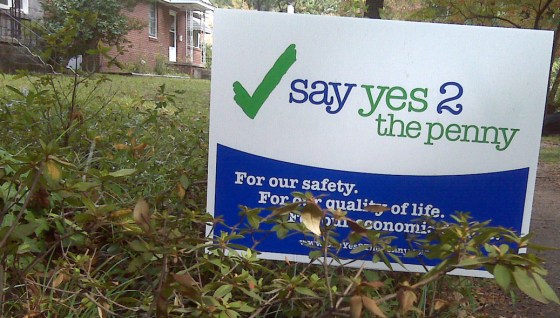This morning as I parked on Assembly preparing to go in for breakfast, I ran into my good friend Samuel Tenenbaum, who was just leaving. He was agitated, as he often is. He and Patrick Cobb from AARP had just been commiserating about the general decline of our society, what Daniel Patrick Moynihan termed “defining deviance downward.”
And he couldn’t even get the first few words out without being interrupted by a beat-up car with a massive sound system, pulling up at the light right next to us, drowned his words. In frustration, he raised his voice higher to say that was just the kind of thing they were talking about — look at that guy; he’s not even embarrassed! Indeed not. He had his windows part way down, the better for us to hear the obnoxious sounds emanating from within (although not enough for us to see the darkened interior).
Of course, this was just part of the picture, the triumph of low and tacky that washes over us like a tsunami, from Sarah Palin (and such maids-in-waiting as Nikki Haley and Christine O’Donnell) to reality TV. I nodded and agreed that these were parlous, tacky times. (Oh, and no fair throwing that last post at me in this regard.) I tried to pull the conversation AWAY from booming basses, lest Samuel draw gunfire from the guy in the car. You never know.
What Samuel was exhibiting, of course, was a quality that people with a respect for the language would term “conservatism,” in the purest sense — decrying change, longing for a better time when people respected each other more. This may shock those who think of Samuel, with some justice, as one of the few actual liberal Democrats in South Carolina. But that’s what it was. Samuel was being as conservative as all get-out.
This brings me to something I read in the paper this morning:
House Republicans have a simple 2010 election agenda for S.C. voters — boost their Republican majority to 75 members, then watch conservative reform take hold.
Note the lack of quotations around the oddly oxymoronic phrase, “conservative reform.” Irony is often lost on news people, who have to play it deadpan. But what interested me is how a phrase that I remember hearing for the first time this year (it first jumped out at me back here) — I remember it because it struck me as odd — has now entered the lexicon so completely that an experienced reporter like Roddie Burris would use it, straight-faced, without attribution. And that his editors would go along.
My hat is off to the Tea Party and its allies, because a result like this would make any propagandist, even the propagators of Newspeak, envious. Causing people to adopt one’s own linguistic restylings is to propaganda what the hole-in-one is to golf, or the 300 game to bowling.
My problem with the phrase, of course, is that conservatism, rightly understood, is a resistance to change — not advocacy of it, whether the change is termed “reform” or not. If a conservative wants change, then he wants to change back to the way things once were, and then the term is no longer “conservative,” but “reactionary.” Properly understood.
Yes, I get that people want to reform the government in ways that they maintain are in keeping with “conservative” principles. And that’s not inherently oxymoronic, however much it might sound that way. For instance, the kind of restructuring of state government that I and Nikki Haley and (most effectively) Vincent Sheheen advocate would introduce such “conservative” values as accountability to entities and processes that now answer to no one.
My problems is that a lot of people call themselves “conservative” when they are not, according to any traditional meaning of the term. Nikki Haley, for one, whose politics would rightly be termed populist demagoguery (nobody ever called Huey Long “conservative”), and whose personal and business financial accounts exhibit anything but conservative accountability. But one can see why a politician would call herself “conservative” in a state that worships the word. And how he or she would term his or her ideas “reform” whether they are (and sometimes they are) or not.
All perfectly understandable, and perfectly within the honored traditions of political rhetoric.
What surprises me, though, is when I see the rest of us going along with the terminology. I say this not to pick on Roddie or The State. I think they are reflecting the fact that the term has entered the mainstream. I’m just surprised that it has.




 If you were able to watch the debate that just ended, it’s clear on who should be your next governor. Vincent Sheheen scored a decisive victory. He showed that he’s the only candidate that understands the issues and more importantly, the one candidate voters can trust.
If you were able to watch the debate that just ended, it’s clear on who should be your next governor. Vincent Sheheen scored a decisive victory. He showed that he’s the only candidate that understands the issues and more importantly, the one candidate voters can trust.



